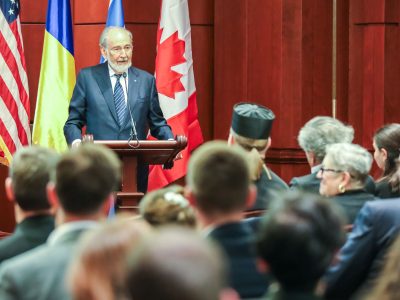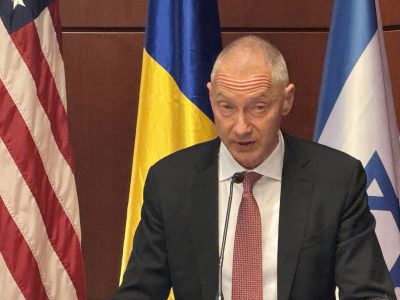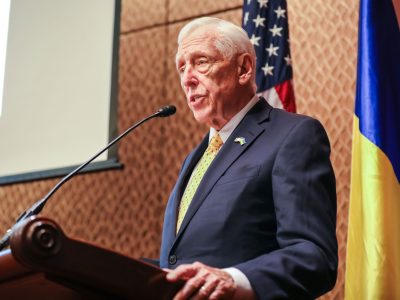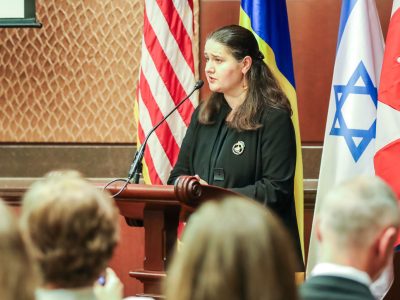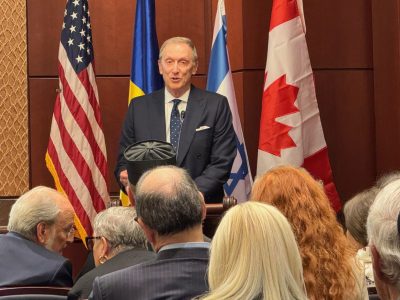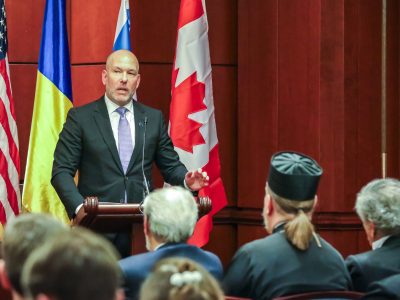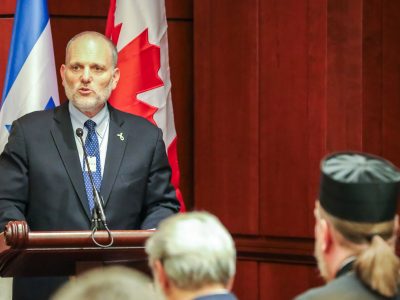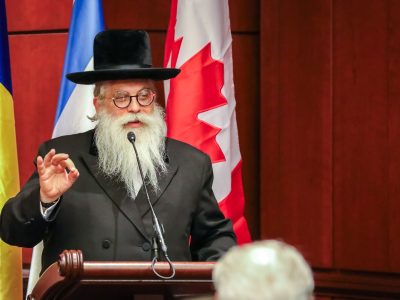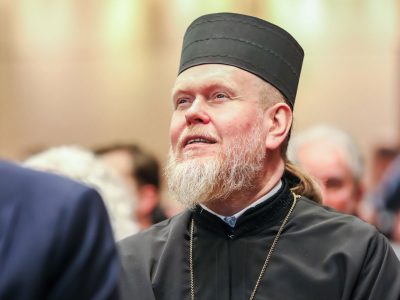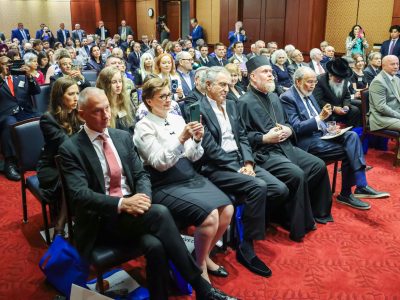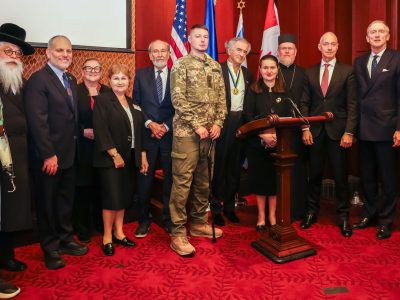Bernard-Henri Lévy and Lina Kostenko receive the Sheptytsky Award at a ceremony in Washington, DC
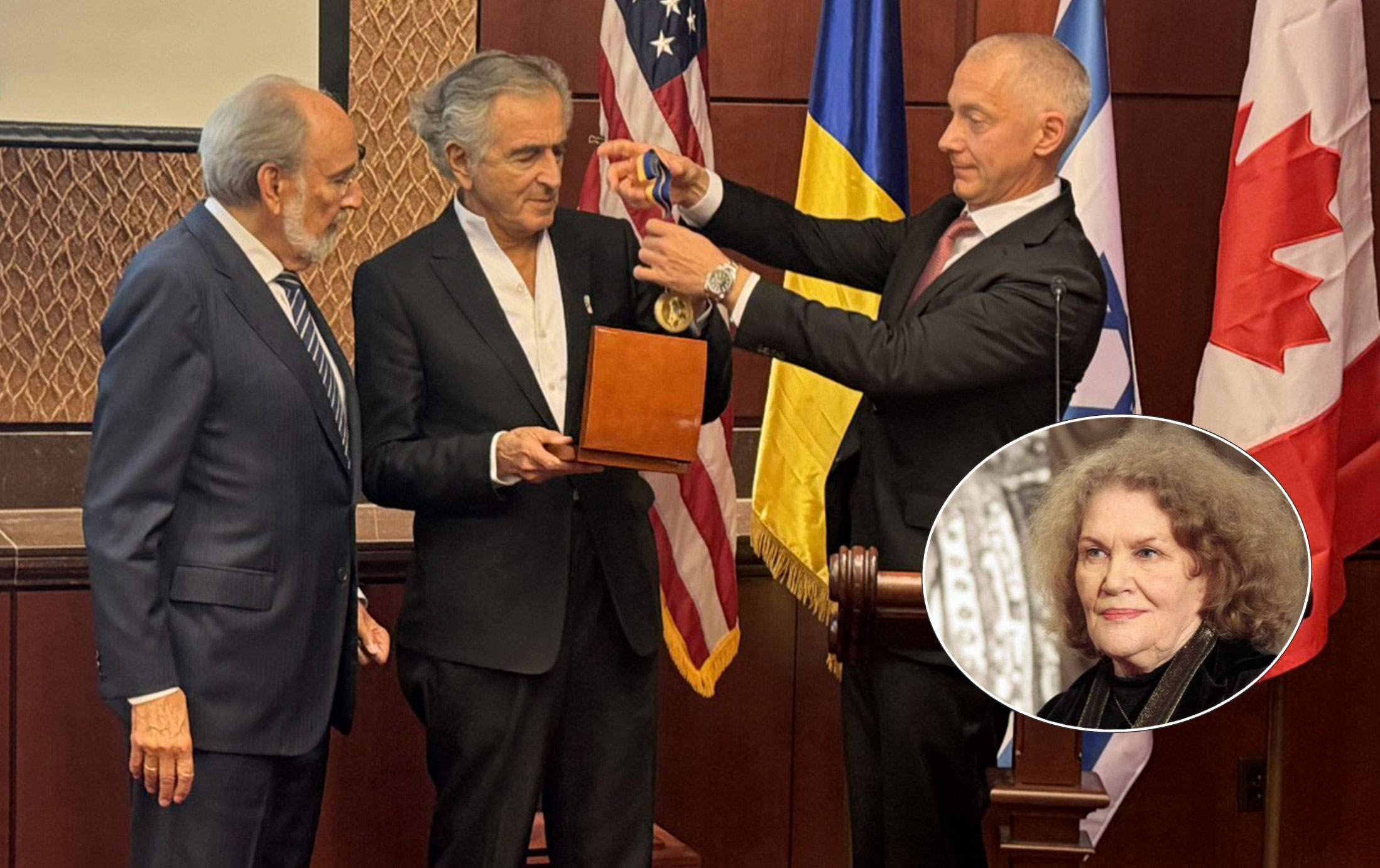
Bernard-Henri Lévy, the French writer and public intellectual, and Lina Kostenko, the renowned Ukrainian poet and former Soviet dissident, were honored with the Andrey Sheptytsky Award at a ceremony held on 30 April 2025 in Washington, DC.
They were honored "in recognition of fearless devotion to justice and truth."
The Ukrainian Jewish Encounter (UJE) and the Jewish Confederation of Ukraine bestow the award to honor individuals in Ukraine, Israel, or from the diasporas who have made significant contributions to Ukrainian-Jewish understanding and cooperation. It is named after Metropolitan Andrey Sheptytsky, the spiritual leader of the Ukrainian Greek Catholic Church, who, during World War II, helped save more than 150 Jewish lives.
The event, held in the US Capitol building, served as a rallying cry for support of Ukraine as the country continues to defend itself against Russia's criminal war that began in 2022.
Dignitaries representing the United States, Ukraine, and Europe were present, including Oksana Markarova, Ukraine's ambassador to the United States; James C. Temerty, UJE Board Chairman; Boris Lozhkin, President of the Jewish Confederation of Ukraine; Ukraine's chief Rabbi, Yaakov Dov Bleich; John Herbst, former US ambassador to Ukraine; Mark B. Levin, CEO of the National Coalition Supporting Eurasian Jewry; Paul Grod, President of the Ukrainian World Congress; William Daroff, CEO of the Conference of Presidents of Major American Jewish Organizations; lawmakers, and representatives from Ukrainian and Jewish organizations.
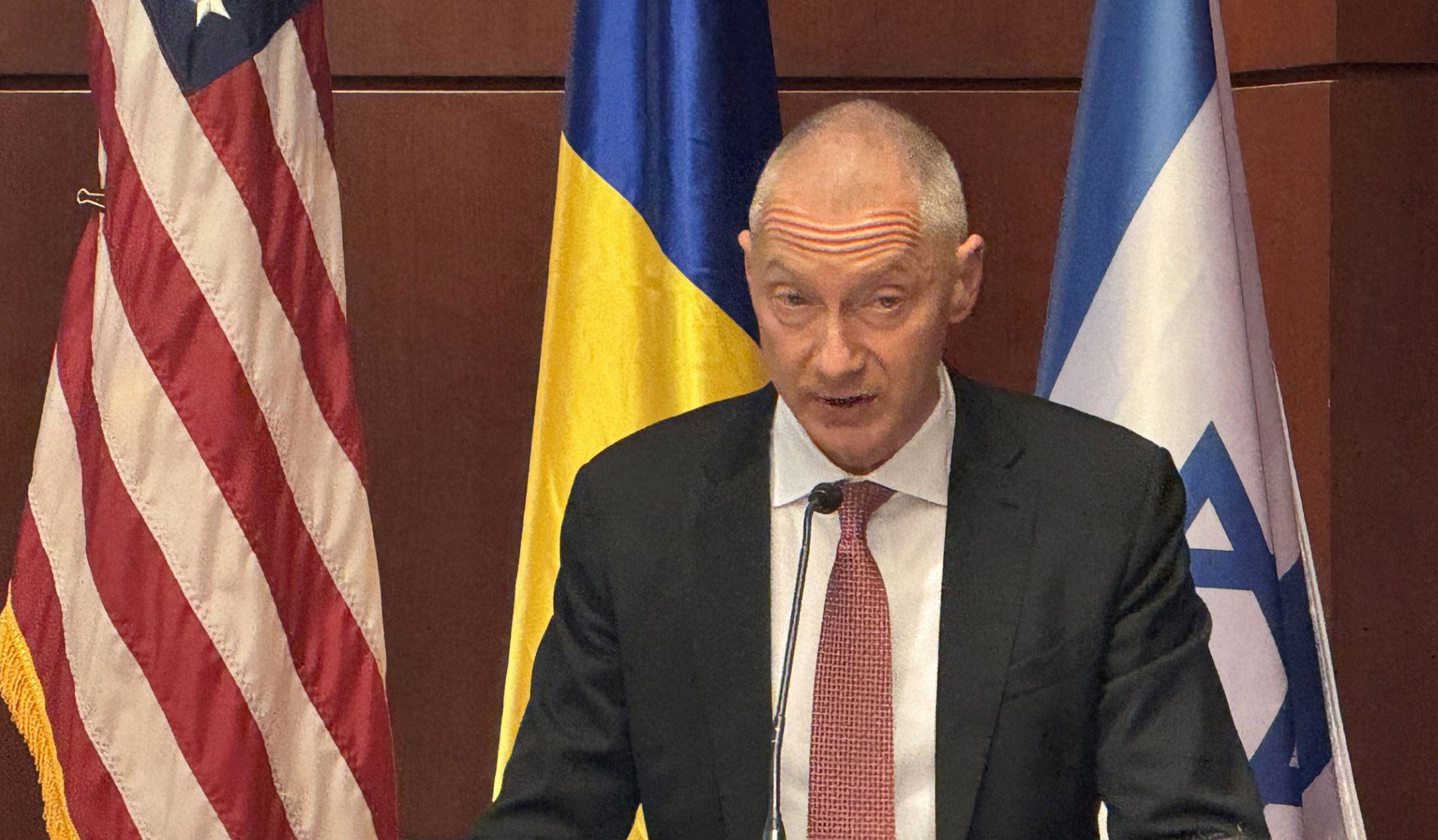
In opening the ceremony, Lozhkin noted that the location of the US capital was chosen to "once again draw the attention of our American friends to the importance of the continuation of support of the United States of both Ukraine and Israel."
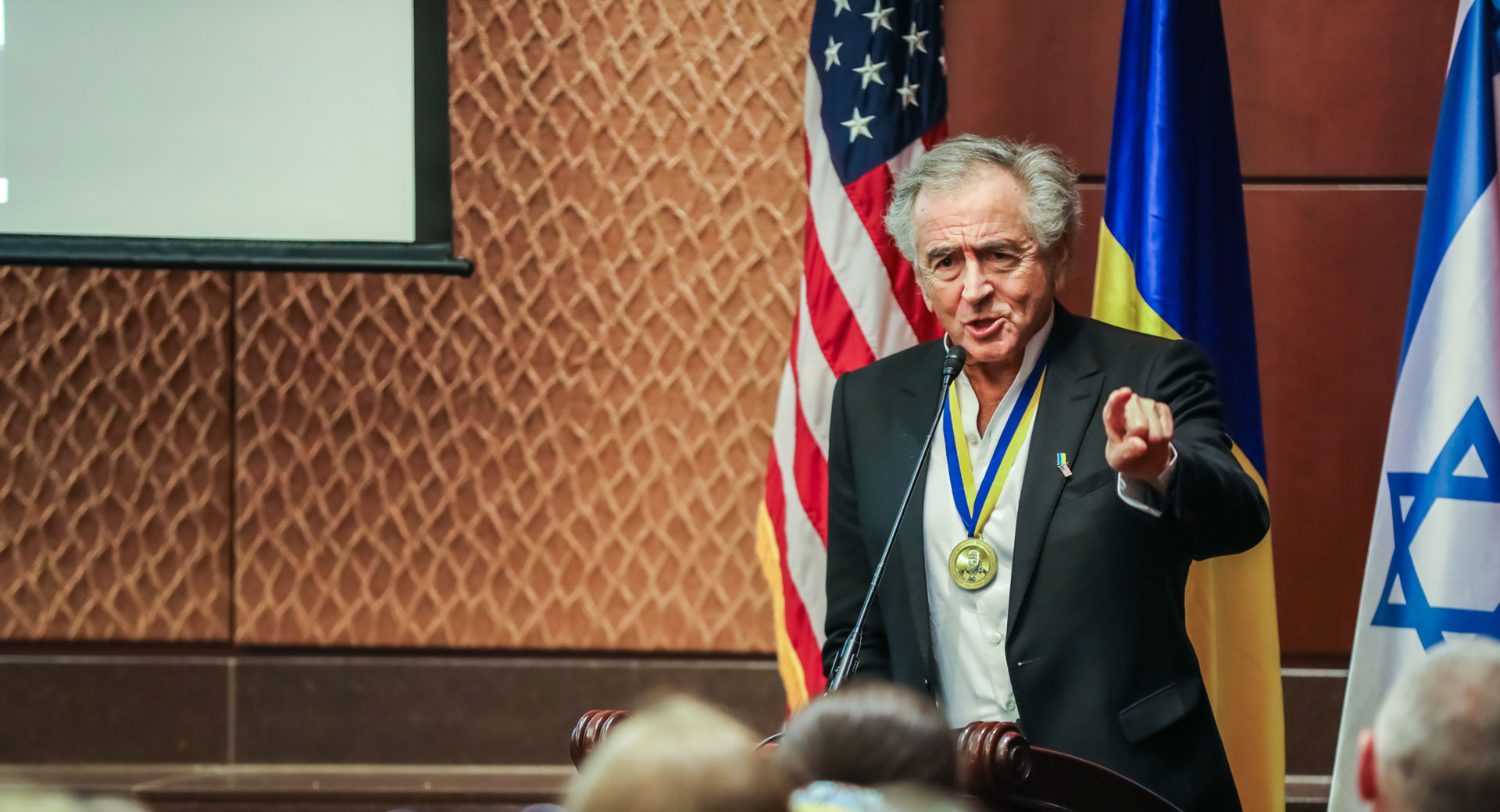
In an impassioned speech accepting his award, Lévy stated that he had just returned from Ukraine's front lines, which he has visited often since the war began. "Ukraine is not losing; it is winning," he said to wide applause.
Noting his pride in receiving the award, Lévy stated that Sheptytsky, during World War II, had written to Pope Pius XII regarding the mass murders of Jews by the Nazis in Ukraine. In a pastoral letter titled "Thou Shalt Not Kill," he called on his congregants not to participate in atrocities.
"This, for me, is an example, of course, of bravery, of spiritual dignity, but also of this unbreakable bond," Lévy said. Noting that he was "emboldened by the great honor you offered me today," he stated he would fight for recognition of Sheptytsky by Yad Vashem as a Righteous Among the Nations. This honor has thus far eluded him.
"Andrey Sheptytsky is more than a bridge. He is a bond. He is a bond of flesh, of sound, of life, and of hope between the Jews and Ukraine. There are other bonds between the Jews and Ukraine. The president of Ukraine today, Volodymyr Zelensky, is one of these bonds. He is a Jew. His family paid a huge price in the Holocaust, and he is the best elected president, not only in Ukraine but in the West," said Lévy.
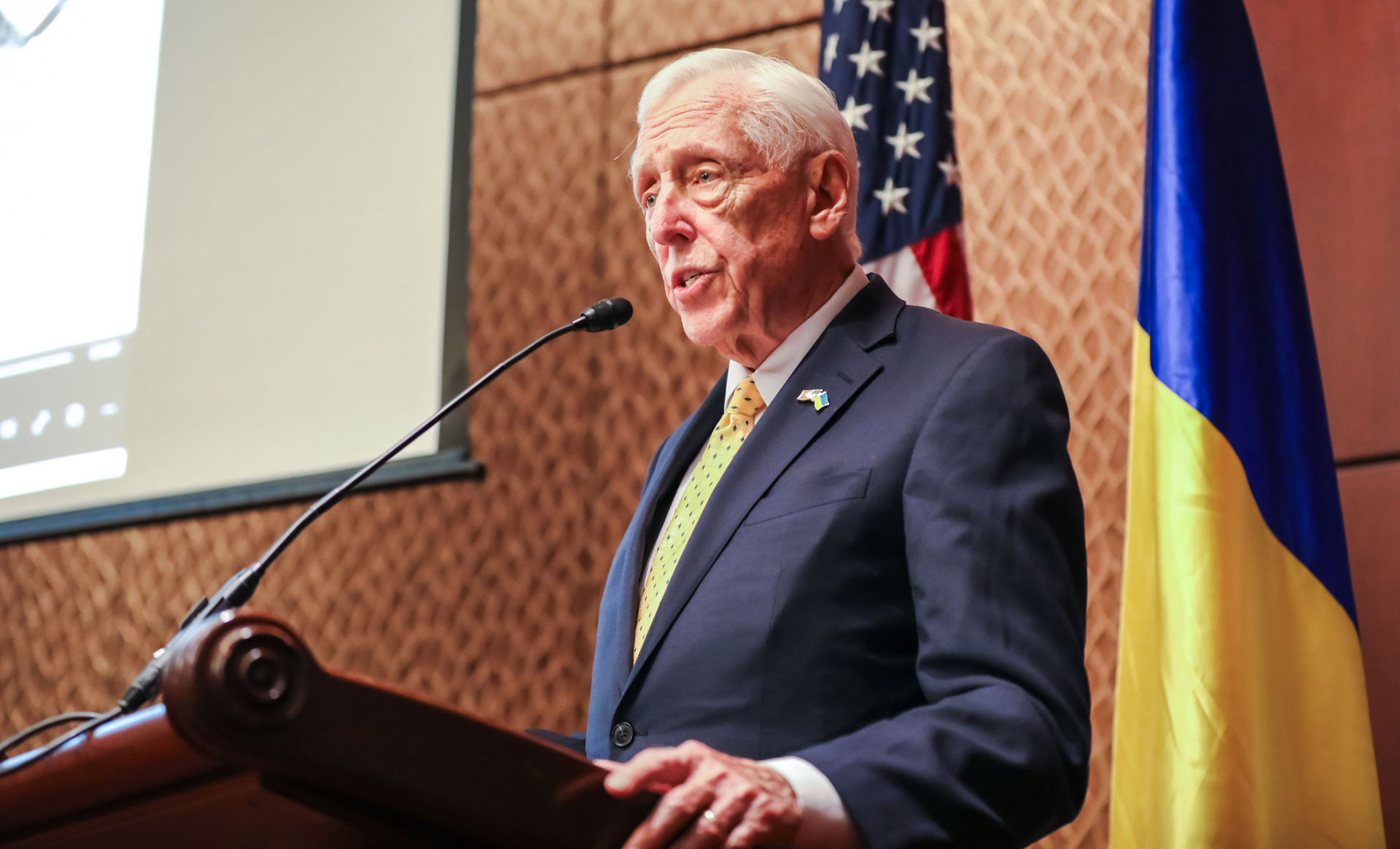
A long-time supporter of Ukraine, Rep. Steny Hoyer (D-Maryland) preceded Lévy's remarks, noting he first visited Kyiv in 1987 during the Soviet era.
"What is happening in Ukraine is one of the most important things happening in the world and will dictate whether or not we have international law and some degree of international stability. And we will have that if we win," he said. "Your theme this evening is 'Moral Courage in a Divided World.' I first saw Ukrainians display that moral courage when I was chair of the US Helsinki Commission in the waning years of the Cold War, well before I became chair of the Helsinki Commission," he noted.
"Freedom is at risk of being destroyed, not only in Ukraine, if we lose this war. And I say [this] because we're in this together…In Bucha and beyond, the Russians have butchered an untold number of civilians."
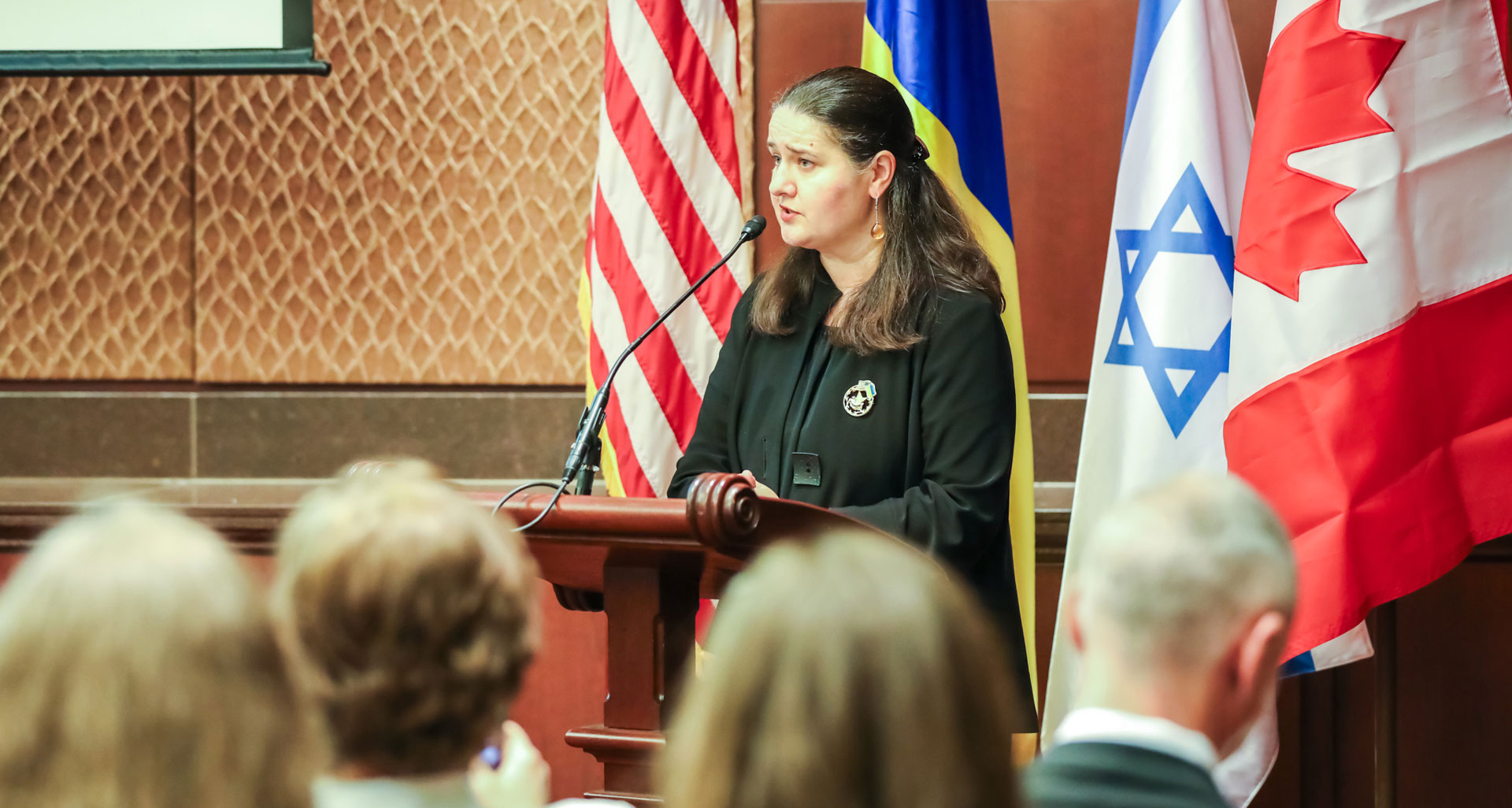
Oksana Markarova, Ukraine's ambassador to the United States, warmly congratulated the award recipients, noting that they embody the values of Metropolitan Sheptytsky, who "stands for all of us as the eternal symbol of ethical and worldly leadership, in addition to spiritual leadership."
She also thanked those present for their support of Ukraine. "We really appreciate the bipartisan support. We would not be where we are as a country without very strong bipartisan support," noting that she had just come from the signing of the United States-Ukraine Reconstruction Investment Fund agreement.
"We all pray for President Trump to be effective in his initiatives. And as you know, President Zelensky in Ukraine agrees right away to a full and comprehensive ceasefire. And we have to double down to make sure that Russia agrees to that. God bless America for all the support. God bless all Americans for staying together with us," the ambassador said.
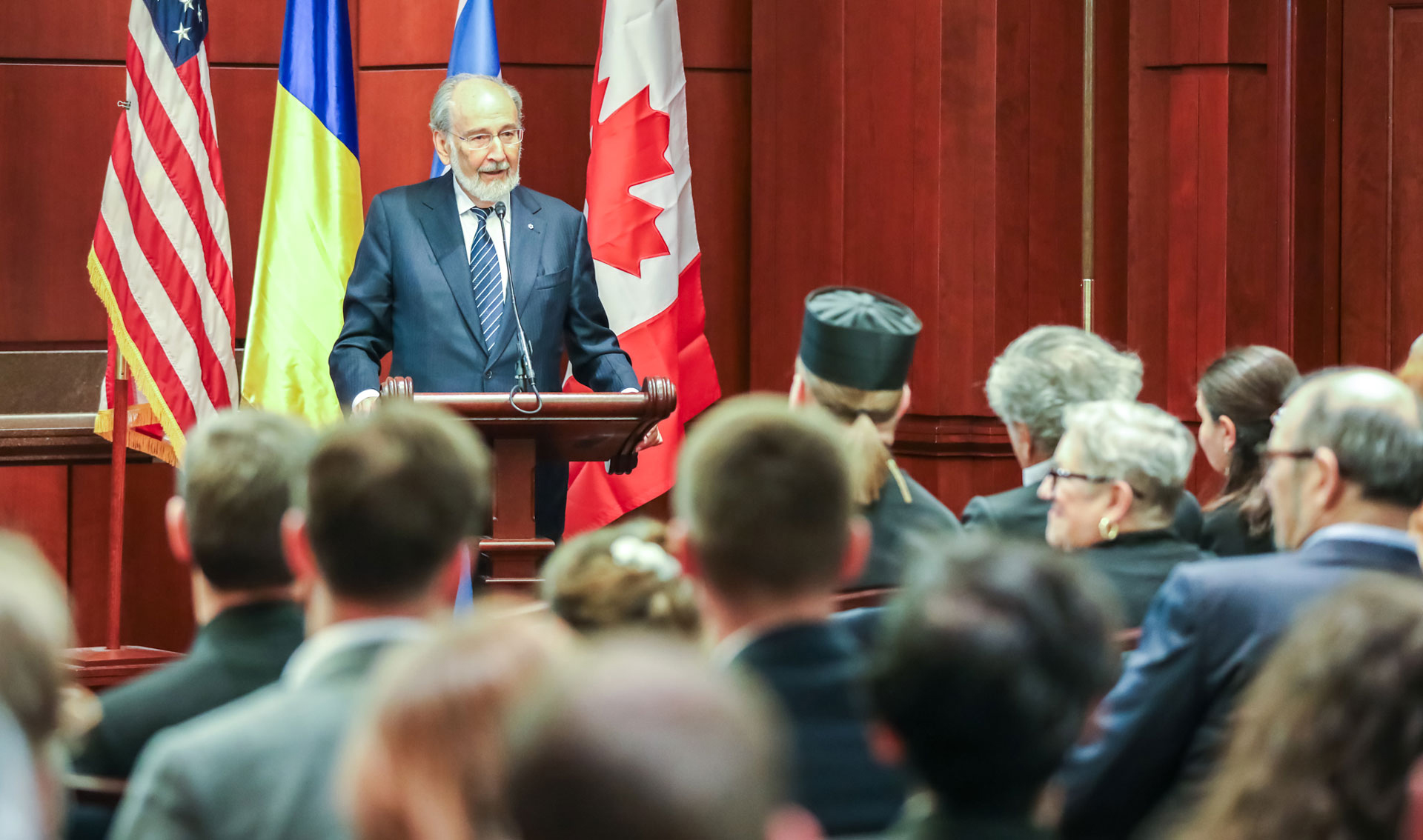
In his remarks, UJE Board Chairman James Temerty thanked Rabbi Bleich as a driving force behind the Andrey Sheptytsky Award, noting, "None of [this] would have happened if it had not been for your vision. So, we're deeply indebted.
"Tonight, we gather to celebrate moral courage in a divided world, a theme that resonates profoundly in these challenging times. As the chairman of the Ukrainian Jewish Encounter, I am proud of our mission to build bridges between Ukrainian and Jewish communities, two peoples whose histories are intertwined through shared resilience, shared suffering, and shared aspirations for a better future. Inspired by the legacy of Metropolitan Andrey Sheptytsky, who risked his life to protect Jewish lives during the Holocaust, UJE fosters dialogue, mutual understanding, and trust. From educational programs to cultural initiatives, we work to heal historical wounds and celebrate the rich contributions of both communities," he said.
"Tonight, we honor two extraordinary individuals, Bernard-Henri Lévy and Lina Kostenko, whose moral courage embodies his spirit. Through their words and actions, they have confronted division, defended human dignity, and inspired unity across cultures and nations. Their stories remind us that courage, whether in the face of oppression or in the pursuit of truth, can light the way toward reconciliation and hope. This ceremony, held here in the heart of American democracy, is a testament to the power of shared values."
While Lévy is a well-known figure internationally, Kostenko is a towering figure in Ukraine. Throughout her long career, she has been a poet, writer, journalist, and former Soviet dissident, never bowing to Soviet authorities — a point underscored by Ambassador Markarova.
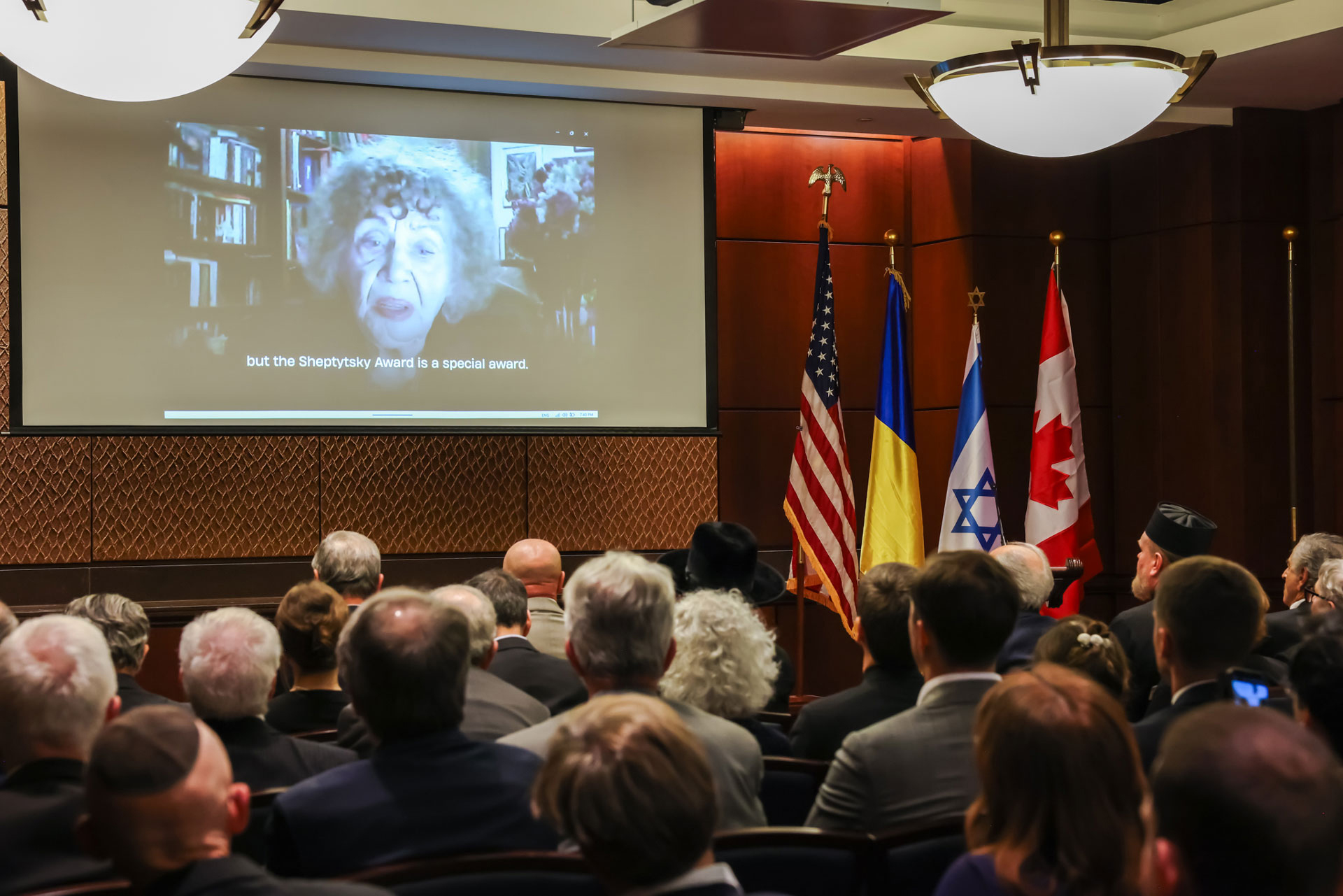
Having recently celebrated her 95th birthday, Kostenko could not attend the ceremony in Washington. Nevertheless, she addressed the audience with a recorded video highlighting significant moments of the Ukrainian-Jewish intersection in her life.
"This is a great honor, and this is an unexpected award for me, which takes on special significance in these tragic times for Ukraine and Israel," Kostenko said. "When and how did the Jewish world enter my life? Through empathy, through compassion. My childhood fell on World War II. We lived on Trukhaniv Island. It was a beautiful park in Kyiv opposite the monument to Volodymyr. And as I remember today, my little friend Yoshi is walking to school along the bank of the Dnipro River and singing at the top of his lungs. The war forced us to leave that corner of paradise. The island was actually destroyed during the battles for Kyiv. When we returned there again, there were very few people on the island. Yoshi was not among them. And then we heard the terrible news. Yoshi was shot along with other Jews in Babyn Yar. Before that, in school, children did not even think about who was of what nationality. So, the understanding of Yoshi's identity came with his death. The rest of my life, I have not been able to understand how a little boy singing on the golden sands on the banks of the Dnipro River could be shot."
Kostenko also recalled her friend Anatoly Kuznetsov, who had sent her an uncensored manuscript of his book about Babyn Yar; he had witnessed the tragedy as a child. She also spoke of her friend Ivan Dziuba, who, on 29 September 1966, first spoke of Babyn Yar as a shared tragedy and shared memory of Jews and Ukrainians.
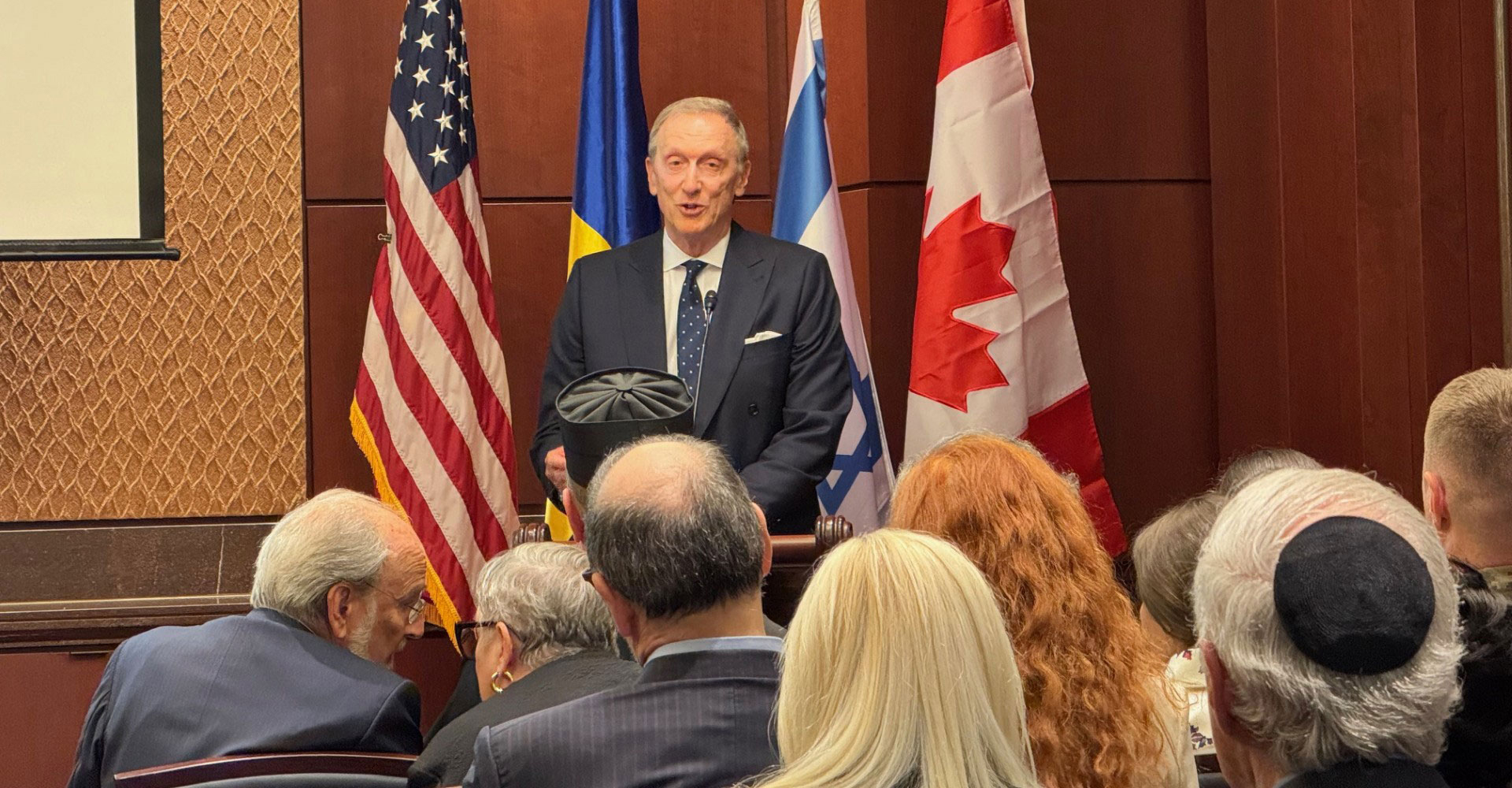
Mark B. Levin, CEO of the National Coalition Supporting Eurasian Jewry, also congratulated the awardees and commented on Sheptytsky's courage:
"We stand with the people of Ukraine. We must also continue to speak honestly to power. We must follow the example set by our two honorees and by Andrey Sheptytsky. Andrey Sheptytsky was part of a small, a very small number of individuals throughout Europe and around the world who were willing to sacrifice everything to save Jewish lives from Hitler's killing machine…Andrey Sheptytsky was willing to shelter Jews. He wrote Pope Pius, alerting him to mass murders taking place in Ukraine, and he urged his own congregants not to support the Nazi's elimination of Ukrainian Jews. That took courage. He was a man of valor and conviction. Our two honorees are people of valor and conviction. Both have spoken out against modern-day atrocities. Both have challenged authoritarian and totalitarian regimes. Both are defenders of human rights, and both are willing to speak honestly to power. Bernard-Henri Lévy and Lina Kostenko are worthy successors to individuals like Metropolitan Sheptytsky and others."
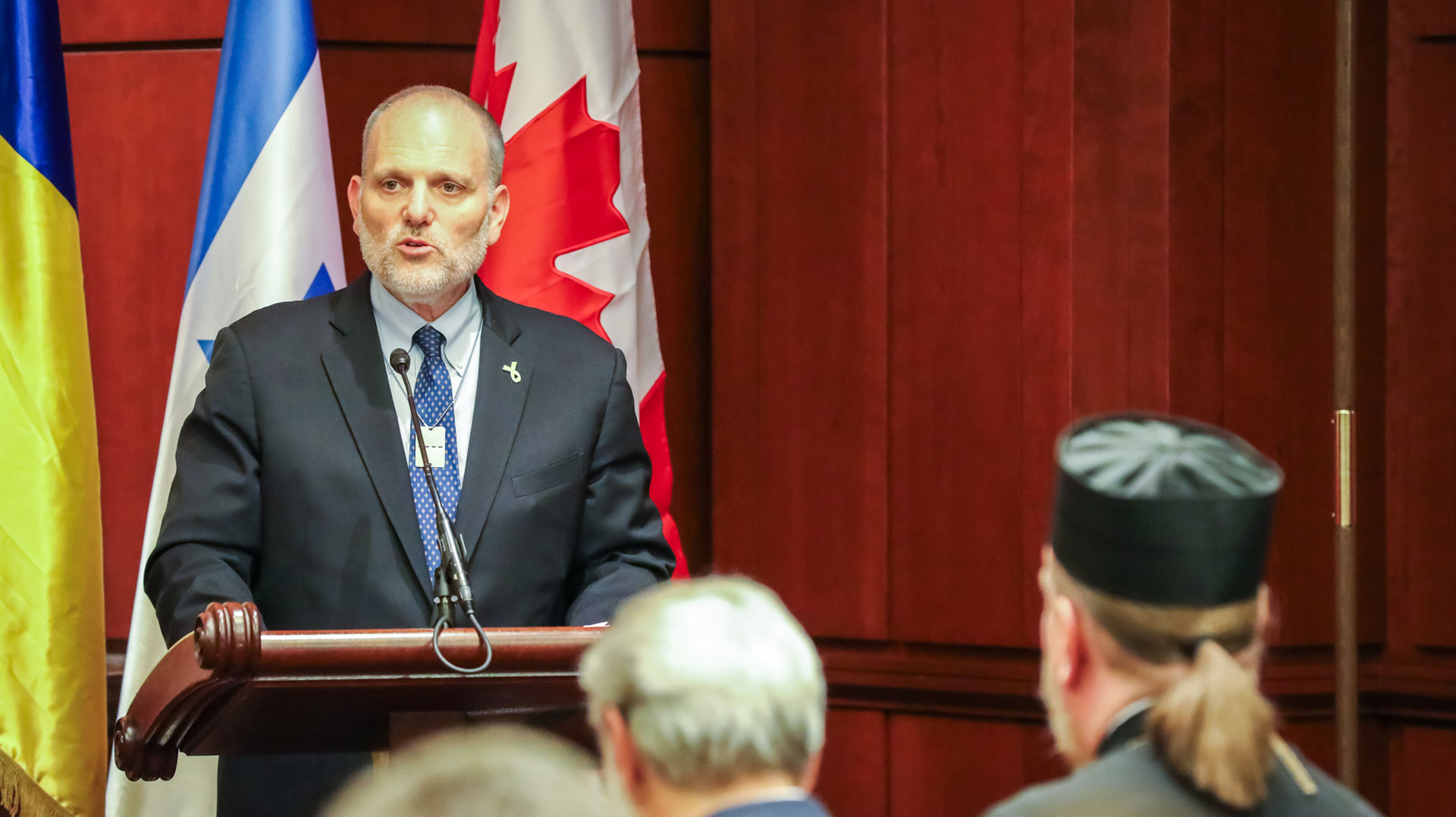
William Daroff, CEO of the Conference of Presidents of Major American Jewish Organizations, said that at "a time when antisemitism and war imperil human dignity, we must uplift those who speak with moral clarity and unwavering integrity. We express our deep solidarity with the people of Ukraine, the Ukrainian Jewish community, who have endured such unimaginable hardship."
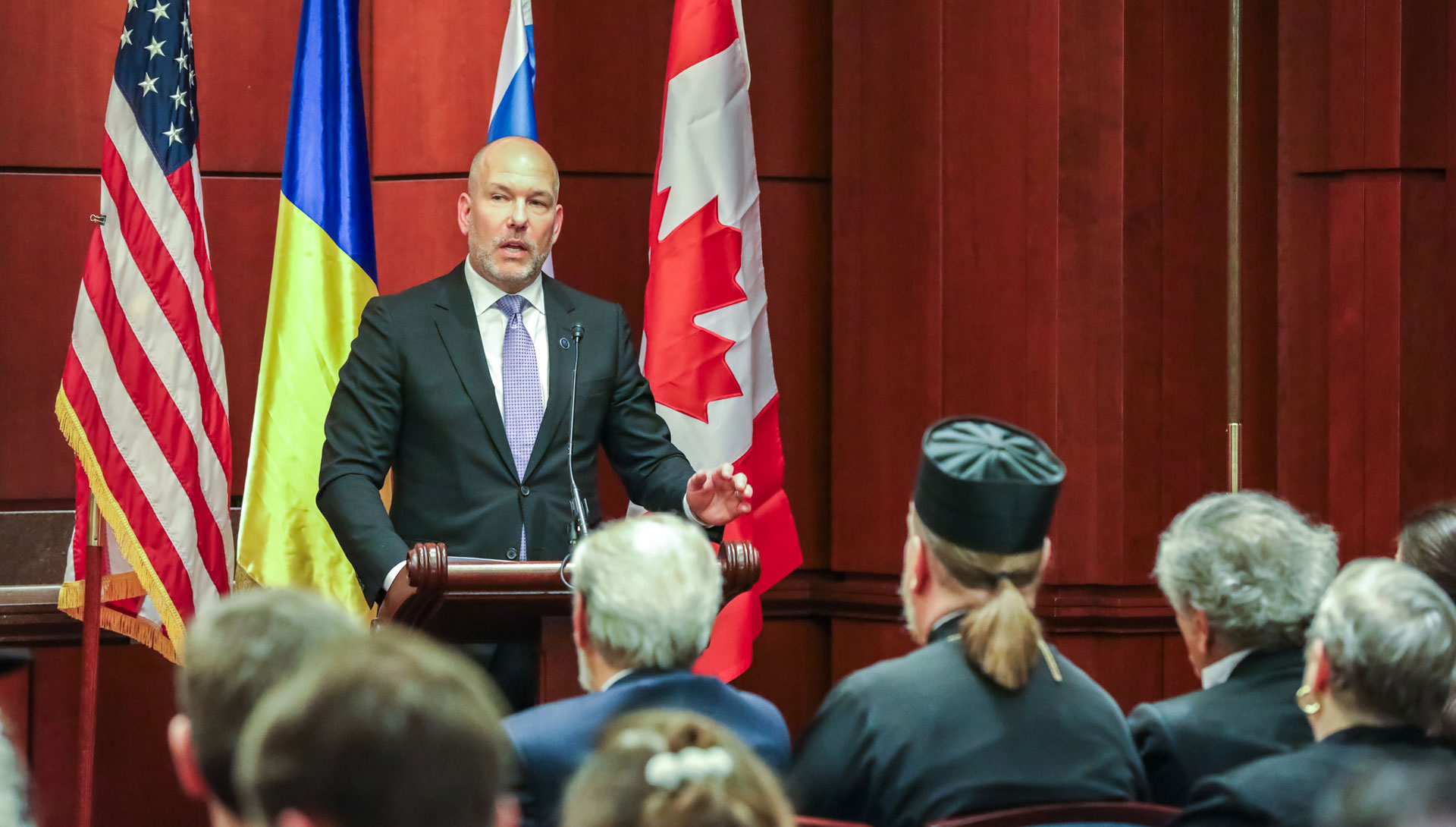
Paul Grod, President of the Ukrainian World Congress, representing the interests of a global Ukrainian community in over 80 countries, also congratulated the awardees, emphasizing that both champion liberty and human rights.
He also thanked "Jewish-Ukrainian and Jewish-American friends who are standing with Ukraine day in and day out… Quite frankly, today, I'm very proud to say that I think that Ukrainians and Jews are more united than ever before."
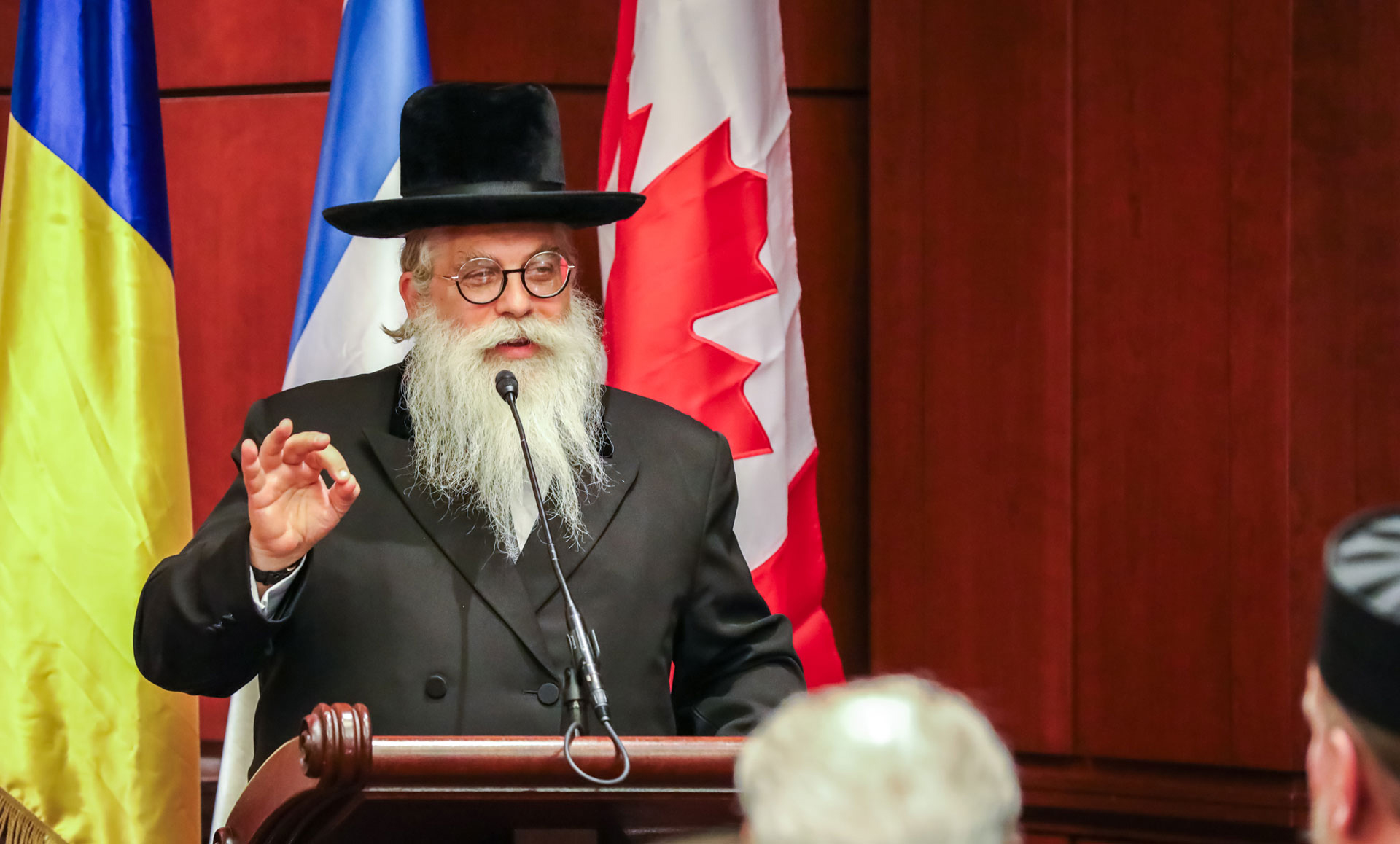
Rabbi Bleich told the audience in his address, "It's not enough to champion a cause. You have to stand up for it. It's not enough to only make declarations. You have to act."
During the ceremony, two soldiers who fought in Ukraine, Mykola Melnyk and Ihor Tish, were introduced to great applause.
About the Andrey Sheptytsky Award
The Ukrainian Jewish Encounter has dedicated significant efforts to advance international recognition of the legacy of the legendary Ukrainian Greek Catholic Church Leader, Metropolitan Andrei Sheptytsky, one of the towering Ukrainian leaders of the twentieth century.
UJE's efforts were advanced when the Jewish Confederation of Ukraine established the Andrey Sheptytsky Medal in 2012. This award recognizes contributions to Ukrainian-Jewish understanding and cooperation. It is given to individuals who are committed to fostering relations between the Ukrainian and Jewish people. Metropolitan Sheptytsky is a model worthy of celebration and emulation, providing a basis for building trust and bridges between communities.
Bernard-Henri Lévy and Lina Kostenko are the fifth and sixth award winners.
Lina Kostenko is considered the most prominent Ukrainian poetess. During Soviet times, her works were banned due to the themes she addressed: the defense of human dignity and the right of nations to self-determination. She has consistently stood up for the identity and rights of Jews, Poles, Tatars, and other peoples who suffered under totalitarian regimes. Her works continue to inspire Ukrainians in their struggle against Russian occupation. Lina Kostenko has always been a voice of truth — one of the core values upheld by Metropolitan Sheptytsky.
Bernard-Henri Lévy is a French philosopher, filmmaker, and author of 49 books and nine films. He is one of the most prominent Western intellectuals advocating for democracy. In 2014, he spoke before the participants of the Revolution of Dignity on Kyiv's Maidan Nezalezhnosti. He represented the President of France at the 75th-anniversary commemoration of the Babyn Yar massacre. He actively supports the Ukrainian people in their resistance to Russian aggression. Lévy is the author of three documentaries about Ukraine: Why Ukraine (2022), Glory to Ukraine (2023), and Glory to the Heroes (2023). His fourth film about Ukraine, Our War 2, will be released in the summer of 2025. Lévy's work aligns with the legacy of Metropolitan Sheptytsky's moral courage, especially in defending human rights and the Jewish people.
In 2018, the Honorable Ronald S. Lauder, philanthropist, activist, and president of the World Jewish Congress, became the fourth award recipient. Amb. Lauder was recognized for his support of Ukraine's Jewish community and his promotion of Ukrainian-Jewish cooperation.
In 2016, the recipient was the Ukrainian writer and former Soviet dissident Ivan Dziuba, recognized for his decades-long commitment to human rights, speaking out against xenophobia and antisemitism, and working for national reconciliation.
In 2014, the award was presented to Ukrainian businessman Victor Pinchuk for his work in fostering Ukrainian-Jewish relations and advancing his homeland's European aspirations. A year earlier, the Jewish Confederation of Ukraine gave the award to James C. Temerty, the Canadian-Ukrainian businessman, philanthropist, and founder of the Ukrainian Jewish Encounter.
About Metropolitan Andrey Sheptytsky
Born in 1865 to a prominent aristocratic family, Metropolitan Sheptytsky was the spiritual leader of the Ukrainian Greek Catholic Church from 1901 until his death in 1944. During World War II, he helped save more than 150 Jewish lives. The Metropolitan sheltered Jews in his residence at significant personal risk and arranged for Church monasteries to protect well over one hundred Jewish children. Not one of them was betrayed or lost.
Metropolitan Sheptytsky also publicly protested Nazi Germany's murderous policies towards Jews, alerted Pope Pius XII in personal reports about the mass murders taking place and issued the pastoral letter Thou Shalt Not Kill in November 1942, urging his parishioners not to participate in Nazi atrocities.
The Metropolitan was dedicated to preserving Ukraine's cultural heritage throughout his life. He collected icons and objects of art and, as a patron of the arts and philanthropist, supported many prominent Ukrainian artists. Today, his collection is the basis of the Andrey Sheptytsky National Museum in Lviv.
Awarding ceremony of the Metropolitan Andrey Sheptytsky Medal — 2025 (Capitol Hill, Washington, DC, 30 April 2025)
00:00:00 Boris Lozhkin, President of the Jewish Confederation of Ukraine
00:04:25 Congressman Steny Hoyer
00:24:40 Oksana Markarova, Ambassador of Ukraine to the United States
00:34:05 James Temerty, Chairman of the Ukrainian Jewish Encounter
00:40:48 Ceremony of awarding Bernard-Henri Lévy the Metropolitan Andrey Sheptytsky Medal
00:41:33 Remarks from Bernard-Henri Lévy
01:04:26 Mark Levin, Executive Vice Chairman and CEO of NCSEJ
01:12:21 Lina Kostenko. Welcome Remarks
01:14:57 Lina Kostenko. For Your and Our Future
01:28:00 James Temerty. Words of gratitude to Lina Kostenko
01:32:27 William Daroff, CEO of the Conference of Presidents of Major American Jewish Organizations
01:36:01 Paul Grod, President of the Ukrainian World Congress
01:41:56 Rabbi Yaakov Dov Bleich, Chief Rabbi of Kyiv and Ukraine
Lina Kostenko. For Your and Our Future
Text: Natalia A. Feduschak
Photos: Mo Broushaky, Natalia A. Feduschak
Video: Jewish Confederation of Ukraine







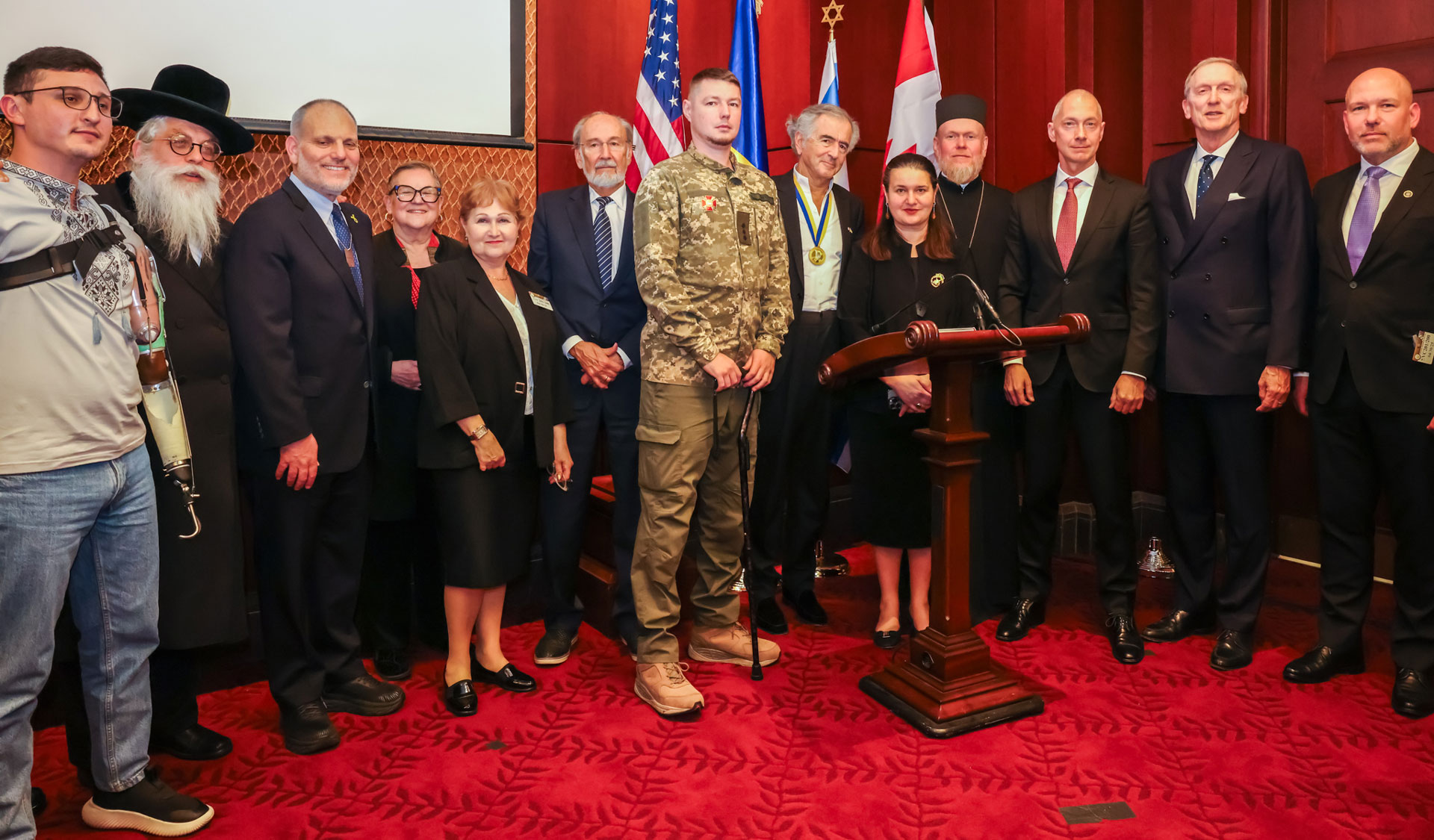
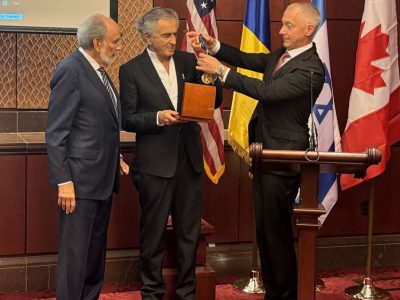
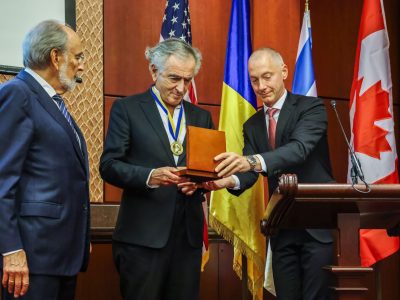
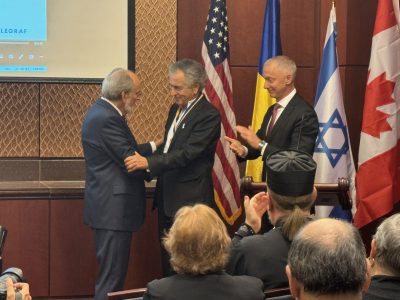
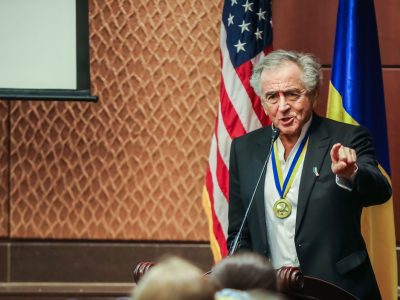
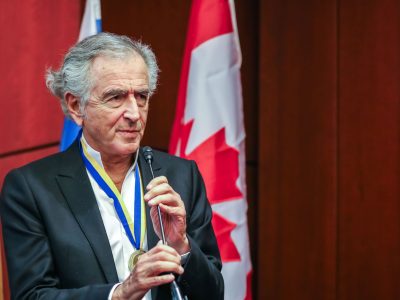
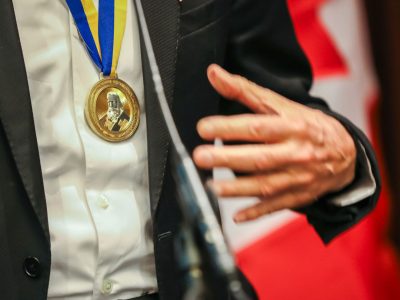
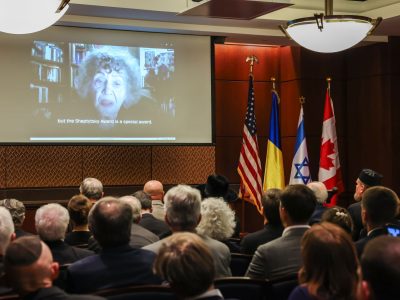
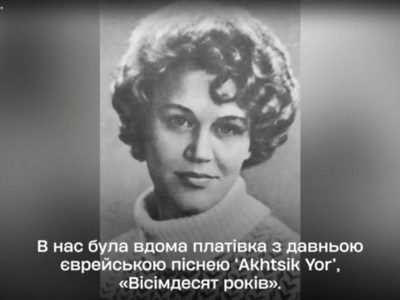
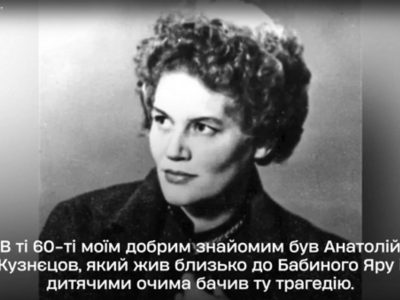
![Lina Kostenko, 2025 recipient of the Andrey Sheptytsky Award, stated: "In fact, it was [Ivan] Dziuba who, on 29 September 1966, first spoke of Babyn Yar as a shared tragedy and shared memory of Jews and Ukrainians." Dziuba received the Andrey Sheptytsky Award in 2016 and passed away on 22 February 2022, just two days before the full-scale Russian invasion of Ukraine.](https://ukrainianjewishencounter.org/media/sheptytsky-award-2025-08-400x300.jpg)
